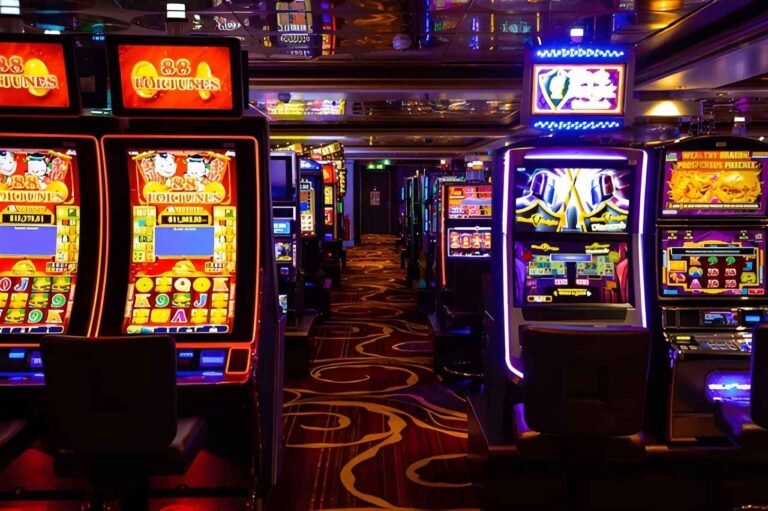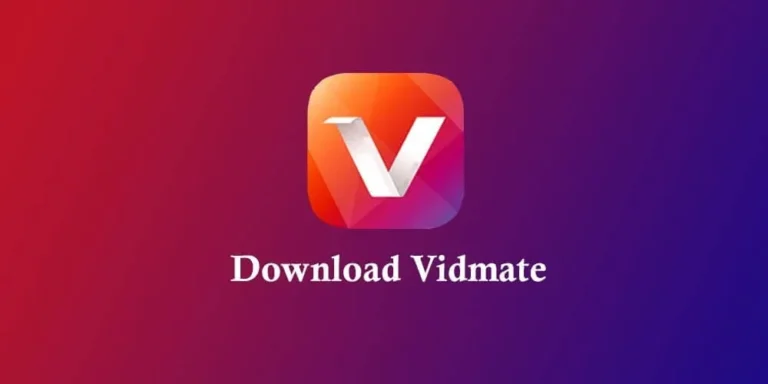
In regional Victoria, gambling is moving from pubs to smartphones. What was once a shared, social activity tied to local venues is now increasingly private, mobile, and on-demand.
This article looks at what’s driving that shift from demographic change and digital access to emotional factors and regulation and what it means for the future of gambling in rural communities.
Changing the Venue, Changing the Habit
The move away from social, venue-based gambling in pubs and clubs marks more than just a shift in setting — it signals a transformation in how gambling is experienced in everyday life across regional Victoria.
The Decline of Pub-Based Gambling
For years, pubs and clubs in towns like Mildura, Swan Hill, and Robinvale served as informal hubs where people gathered not just to gamble, but to connect. Meals, drinks, raffles, and a few spins on the pokies were part of a weekly rhythm that blended entertainment with routine. But changing habits, declining attendance, and ageing infrastructure have made these spaces feel less central to local life. In many areas, pokie machines are no longer just underused, they’ve lost much of their cultural presence.
The Rise of On-Demand Play
At the same time, online pokies have become instantly accessible through phones, tablets, and laptops — requiring no travel, no conversation, and no public visibility. This convenience is particularly appealing in remote areas where venues may be few and far between. Players can now spin while watching TV, before bed, or during breaks at work — habits that are harder to monitor and easier to conceal. The result is a shift from social engagement to isolated consumption, changing both how and why people gamble.
Who’s Playing Now? Changing Demographics in Regional Victoria
Digital gambling hasn’t just changed the format. It also reshaped the profile of who gambles, when, and why. In regional Victoria, this shift is especially visible across age, gender, and household context.
Younger Players, Different Priorities
Gen Z and Millennials in rural areas are far less attached to pubs than previous generations. They prefer mobile apps that offer fast access, flexible timing, and minimal friction. Many discover new titles through streaming platforms, peer recommendations, or aggregator sites that list the best real money online pokies for Australian players. For this group, gambling has become something casual — a few spins during downtime, not a night out.
Women and Lifestyle Gambling
A growing number of women in regional towns are engaging with pokies through mobile platforms. These apps offer private, low-pressure experiences that fit into domestic routines. Gambling becomes something done quietly — while multitasking or unwinding — rather than in public venues. It’s often framed as stress relief, not as gambling in the traditional sense.
Gambling in Isolation
In areas with fewer social outlets, pokies can fill a gap — offering a sense of rhythm, distraction, or escape. For older or isolated users, especially post-COVID, gambling becomes part of the everyday. It’s not always visible, but it’s persistent.
Demographic Snapshot: Gambling Patterns in Regional Australia
| Group | Participation in Gambling | Notable Trends |
| Ages 18–24 | 46% tried gambling | Mobile-first, often during downtime |
| Women in regional areas | 42% of online gamblers | Increasing use of pokies apps in home settings |
| Adults 55+ (rural) | 61% regular play | Often solo play, especially in isolated households |
| Adolescents (12–17) | 16% early exposure | Mostly via ads, influencer content, and demo games |
Tech Access and the Rural Gambling Boom
The spread of affordable smartphones and reliable internet has made online pokies more accessible in regional Victoria than ever before. Where once distance limited access to licensed venues, now gambling is just a tap away — at any time, in any setting.
Widespread Digital Access
Mobile penetration in rural areas has grown rapidly. According to the Australian Communications and Media Authority (2024), 92% of regional Australians aged 18–64 now own a smartphone, and more than 70% use them for entertainment daily. Online gambling apps are increasingly indistinguishable from casual games, and many are promoted through regular app stores, social feeds, or influencer content. The result is frictionless entry — no membership, no drive to town, no questions asked.
Interface Psychology and Habit Loops
Modern gambling apps use design techniques drawn from mobile gaming and social media. Features like daily rewards, streak bonuses, and autoplay create strong reinforcement loops that can build habits quickly. Notifications prompt users to return, while sound effects and visual cues simulate the feeling of progress. These mechanics are especially effective when users are isolated, stressed, or time-poor — conditions common across rural communities.
These changes reflect more than just individual choices – they are changing the entire experience of gambling. What was once a social event in a physical establishment has now become a seamless digital behavior embedded in everyday life. The contrast between traditional and online formats is particularly noticeable in rural areas where infrastructure, privacy and convenience are shifting the balance.
The following table shows how access to gambling varies by format in the Victoria region:
| Feature | Venue-Based Gambling (e.g. pubs, clubs) | Online Gambling (mobile, desktop) |
| Physical availability | Limited by location and hours | 24/7 access from any device |
| Travel required | Yes — especially in remote areas | None |
| Social context | Public, communal | Private, solitary |
| Entry barriers | Venue rules, age checks, public setting | Minimal — often just app install |
| Interface design | Simple, static | Gamified, responsive, personalised |
| Age filtering & visibility | Enforced in-person | Easily bypassed or unclear in some apps |
| Usage tracking or intervention | Staff may observe risky behaviour | Often absent — unless tools are self-applied |
| Perceived anonymity | Low | High |
Cultural Shifts: From Shared Ritual to Private Habit
The move from pub-based pokies to personal screens hasn’t just changed how gambling works. It has changed what gambling means, especially in communities where pubs once played a central social role. As access has become more private and play more frequent, gambling is no longer framed as a night out, but as something that happens quietly, even invisibly.
The End of Club-Centric Gambling Culture
In regional towns, pubs and clubs used to serve as more than gambling venues. They were spaces where people connected — over meals, raffles, bingo nights, or weekend drinks. The pokies were one part of a larger social experience. But with younger generations showing less interest in traditional venues and fewer new members joining community clubs, that shared ritual is fading. Gambling has become detached from the wider sense of belonging that once surrounded it.
Solitary Gambling as a New Norm
Mobile gambling doesn’t require a group, a schedule, or a reason to leave home. In many households, it takes place late at night, during quiet moments, or while multitasking — often without others even knowing. This privacy may seem harmless, but it also means less accountability and fewer opportunities for early intervention. For many in regional Victoria, gambling has shifted from visible behaviour to a background habit.
Gambling Ads, Influencers, and Algorithmic Targeting
Digital platforms play an increasing role in how gambling is marketed. Ads for pokies apps often appear between videos, in social feeds, or via influencers — even in regional areas where users may not seek them out. Algorithms amplify engagement based on previous clicks, meaning once a user shows interest, content becomes harder to avoid. This silent, automated exposure replaces the physical signage and venue promotions of the past — making gambling feel ever more normalised, especially to younger users.
Economic and Emotional Drivers
Digital pokies fill different needs for different users — but two underlying motivations come up repeatedly: financial stress and emotional coping. In regional Victoria, both factors are often compounded by economic insecurity and limited access to mental health services.
Financial Pressure and the Hope for Relief
In towns where job opportunities are limited and living costs are rising, gambling is frequently framed as a “manageable risk.” Players may place small bets hoping for a big turnaround, especially when under stress from rent, bills, or debt. These bets can feel rational — a short-term fix, even if unlikely. But the losses build up quietly.
| Location | Total Losses (AUD) | Estimated Loss per Adult |
| Mildura | 54.4 million | ~1,630 |
| Swan Hill | 27.2 million | ~1,480 |
| Greater Shepparton | 59.1 million | ~1,520 |
| Horsham | 18.7 million | ~1,310 |
Despite smaller populations, these regional centres regularly exceed metropolitan areas in per capita gambling losses. Losses come not only from problem gamblers but from regular, moderate use — often by pensioners, part-time workers, or sole traders.
A 2023 report from the Consumer Policy Research Centre found that regional Australians are 1.7 times more likely to use gambling during periods of financial pressure than their urban counterparts.
Emotional Coping in Isolation
For others, the motivation isn’t financial — it’s emotional. Online pokies provide a way to regulate mood, pass time, and distract from loneliness, especially in towns with limited social activity. This is particularly true for single adults, widowed residents, or caregivers with limited mobility. Gambling fills the gaps: it’s available at night, requires no coordination, and doesn’t demand emotional energy from others.
Here’s what regional players frequently report as emotional triggers for play:
- Stress relief after work or caregiving duties
- Escaping grief or anxiety, especially post-COVID
- Replacing lost routines or disrupted social circles
- Filling silence or late-night hours
- Coping with a lack of control in other life areas
These patterns are deeply human — but in digital gambling environments, they’re also quietly reinforced through game mechanics, notifications, and instant rewards. What begins as self-care can evolve into dependency, especially without clear stopping points.
Help, Regulation, and What Comes Next
As online pokies become more embedded in daily life, especially across rural and remote areas, regulation is playing catch-up. While support services exist, many regional users are either unaware of them or face barriers to access. At the same time, policy debates are intensifying — with growing pressure on governments to address advertising, age exposure, and the design of gambling products themselves.
Local and State-Level Responses
Victoria has introduced several initiatives aimed at reducing gambling harm, including self-exclusion tools, counselling networks, and tighter oversight of pokie venues. The BetStop national register, launched in 2023, allows individuals to block themselves from all licensed online gambling services in a single step. According to early data from ACMA, over 18,000 Australians enrolled within the first four months — but uptake in regional areas remains uneven, partly due to digital literacy and service awareness gaps.
Community-based support services also exist — including Gambler’s Help and local financial counselling — but coverage is patchy, and stigma often prevents early engagement. In many towns, support staff are part-time or shared between regions, making consistent outreach difficult. As one Shepparton-based counsellor told The Age: “People come to us when they’ve hit rock bottom — not before. We rarely see early-stage gamblers.”
Policy Gaps and Grey Zones
While Australia has some of the world’s strictest venue-based gambling laws, online environments remain under-regulated in key areas. Social casino games (with no real payouts) still include gambling-style mechanics and often target teens. Loot boxes in video games blur lines even further, simulating reward cycles without full transparency. These mechanics are often exempt from formal gambling legislation — despite clear behavioural parallels.
Advertising is another blind spot. While gambling ads are banned during live sports before 8:30 p.m., targeted promotions via YouTube, TikTok, and streaming platforms continue to reach younger and regional audiences. Algorithms reinforce engagement: once someone clicks or downloads a pokies app, promotional content becomes frequent and personalised. Critics argue that current rules were written for TV — not TikTok.
Toward Smarter, Community-Based Intervention
There is growing recognition that regional communities need more tailored responses — not just blanket restrictions. Local education campaigns, place-based outreach, and culturally relevant messaging have shown more promise than centralised warnings. Some councils have piloted programs in high-risk LGAs, integrating gambling education into public health and financial literacy initiatives.
Experts also call for early-intervention tools to be embedded within apps: time limits, optional delays, transparent session summaries, and dynamic harm alerts. Paired with consistent regulation, these features could reduce the quiet build-up of harm that characterises so much regional gambling behaviour.
Conclusion
The transition from public venues to private screens has changed not only how gambling happens in regional Victoria — but why. For many users, gambling is no longer framed as leisure or risk; it’s a quiet response to emotional strain, economic pressure, or boredom. The habits are digital, the stakes are personal, and the consequences often unfold out of view.
This means responses must change too. Regulation must adapt to mobile-first environments. Support must reach people where they are — especially in towns without local services. And communities must be equipped to talk openly about gambling without shame. What’s happening across regional Victoria isn’t just a shift in access — it’s a redefinition of vulnerability.






